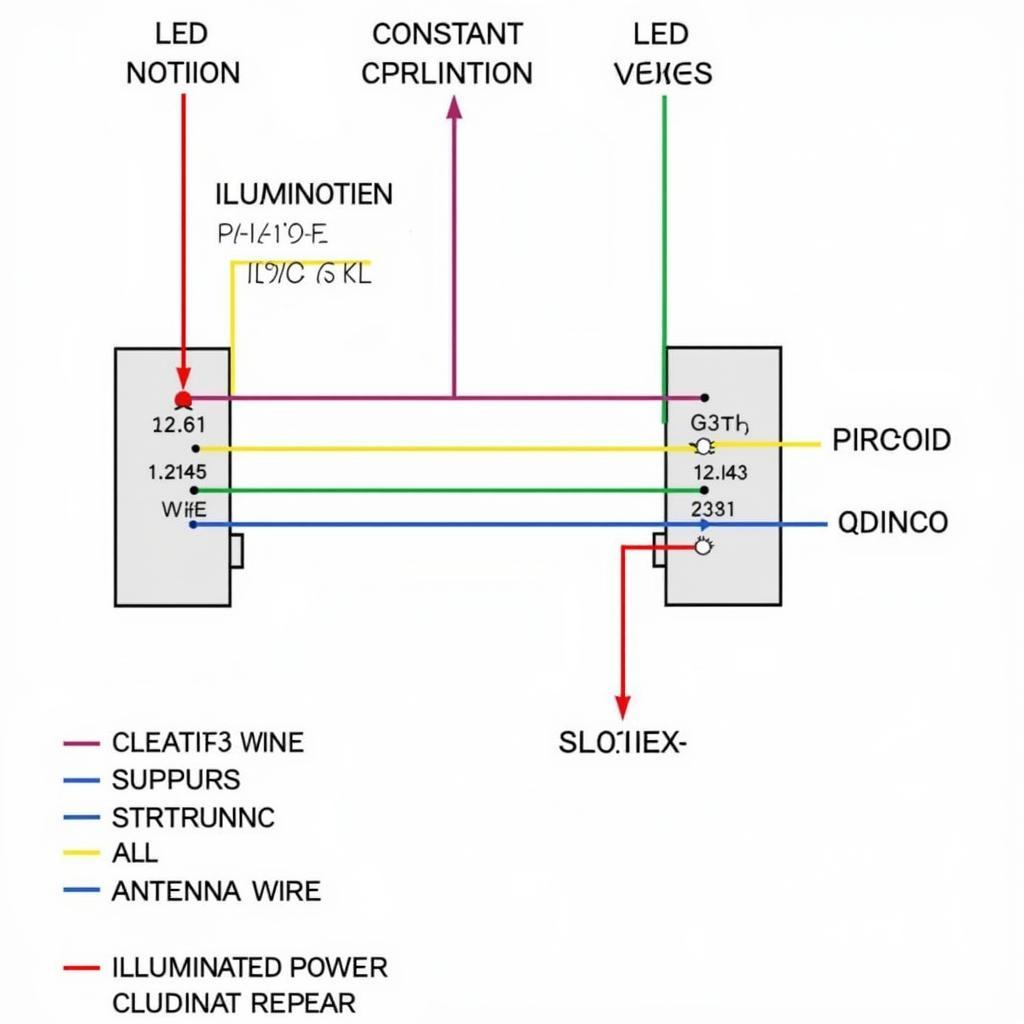That little red light on your dashboard, the brake warning light, can be a source of anxiety. Seeing it illuminate means your car is trying to tell you something important. Ignoring it could lead to costly repairs or even dangerous driving situations. This guide will delve into the reasons why your brake warning light is on, providing you with the knowledge to diagnose and address the issue. Let’s jump right in and understand what could be triggering that warning light. You can discover more detailed information if your brake warning light stays on even after changing your brake pads at changed brake pads but warning light still on.
Common Reasons for an Illuminated Brake Warning Light
There are several reasons why your brake warning light might be on, ranging from simple fixes to more complex issues. Understanding these causes can help you determine the severity of the problem and the next steps to take.
Low Brake Fluid
This is the most common culprit. Your braking system relies on hydraulic pressure, and low brake fluid can significantly compromise its effectiveness. Check your brake fluid reservoir. If it’s low, there might be a leak somewhere in the system.
Worn Brake Pads
Brake pads are designed to wear down over time. When they reach a certain point of wear, a sensor triggers the warning light. This is a crucial safety feature, as worn brake pads can significantly reduce braking performance.
Parking Brake Engaged
Sometimes, the simplest explanation is the right one. If your parking brake is even slightly engaged, the warning light can illuminate. Make sure your parking brake is fully released.
Faulty Brake Light Switch
The brake light switch activates your brake lights when you press the brake pedal. A malfunctioning switch can also trigger the brake warning light.
ABS Issue
Modern vehicles are equipped with Anti-lock Braking Systems (ABS). If there’s a problem with the ABS, the warning light might come on. This could be due to a faulty sensor or a problem with the ABS module itself.
Diagnosing the Problem: What to Do When Your Brake Warning Light Comes On
First, check the obvious: the parking brake and brake fluid level. If those are fine, it’s time for further investigation. If you’re unsure, consult a qualified mechanic. Ignoring the warning light can lead to more serious problems down the road. Find out more about why your brake warning light might have suddenly appeared by visiting why does my brake warning light came on.
Visual Inspection
Look for any signs of leakage around the brake lines and calipers. Check the brake pads for excessive wear.
Professional Diagnosis
If you’re not comfortable working on your brakes, take your car to a qualified mechanic. They have the tools and expertise to diagnose and fix the problem correctly. For intermittent issues, you can learn more at why is brake warning light coming on and off.
Preventing Brake Problems
Regular maintenance is key to preventing brake problems. This includes regular brake inspections, fluid changes, and pad replacements. Don’t wait for the warning light to come on before addressing your brakes. A proactive approach can save you money and ensure your safety.
“Regular brake inspections are crucial. Don’t wait for a problem to arise. Prevention is always better than cure,” says John Smith, Senior Automotive Technician at AutoExperts.
Conclusion
The brake warning light is a crucial safety feature in your car. Understanding why it comes on can help you address the problem promptly and prevent further damage or dangerous driving situations. Don’t ignore this warning sign. Take action and ensure your safety on the road. If your brake warning light disappears when applying the brakes, you can find more information at brake warning light goes off when brakes applied. If it flickers on and off, this article might help: brake warning light comes on and off.
FAQ
-
What should I do if my brake warning light comes on while driving? Pull over safely and assess the situation. Check your parking brake and brake fluid level. If you’re unsure, call a mechanic.
-
How often should I check my brake fluid? Check your brake fluid level at least once a month.
-
How long do brake pads typically last? Brake pad lifespan varies depending on driving habits and conditions. They typically last between 25,000 and 70,000 miles.
-
Can I drive with the brake warning light on? It’s not recommended. It indicates a potential problem with your braking system, which could compromise your safety.
-
Is it expensive to fix brake problems? The cost depends on the specific issue. Simple fixes like adding brake fluid are inexpensive, while more complex repairs can be costly.
-
What is ABS and why is it important? ABS (Anti-lock Braking System) prevents your wheels from locking up during hard braking, allowing you to maintain steering control.
-
How can I prevent brake problems? Regular maintenance, including brake inspections and fluid changes, is key to preventing brake problems.
“Addressing brake issues promptly can prevent more serious and expensive repairs later on,” adds Maria Garcia, Certified Brake Specialist at BrakeMasters.

